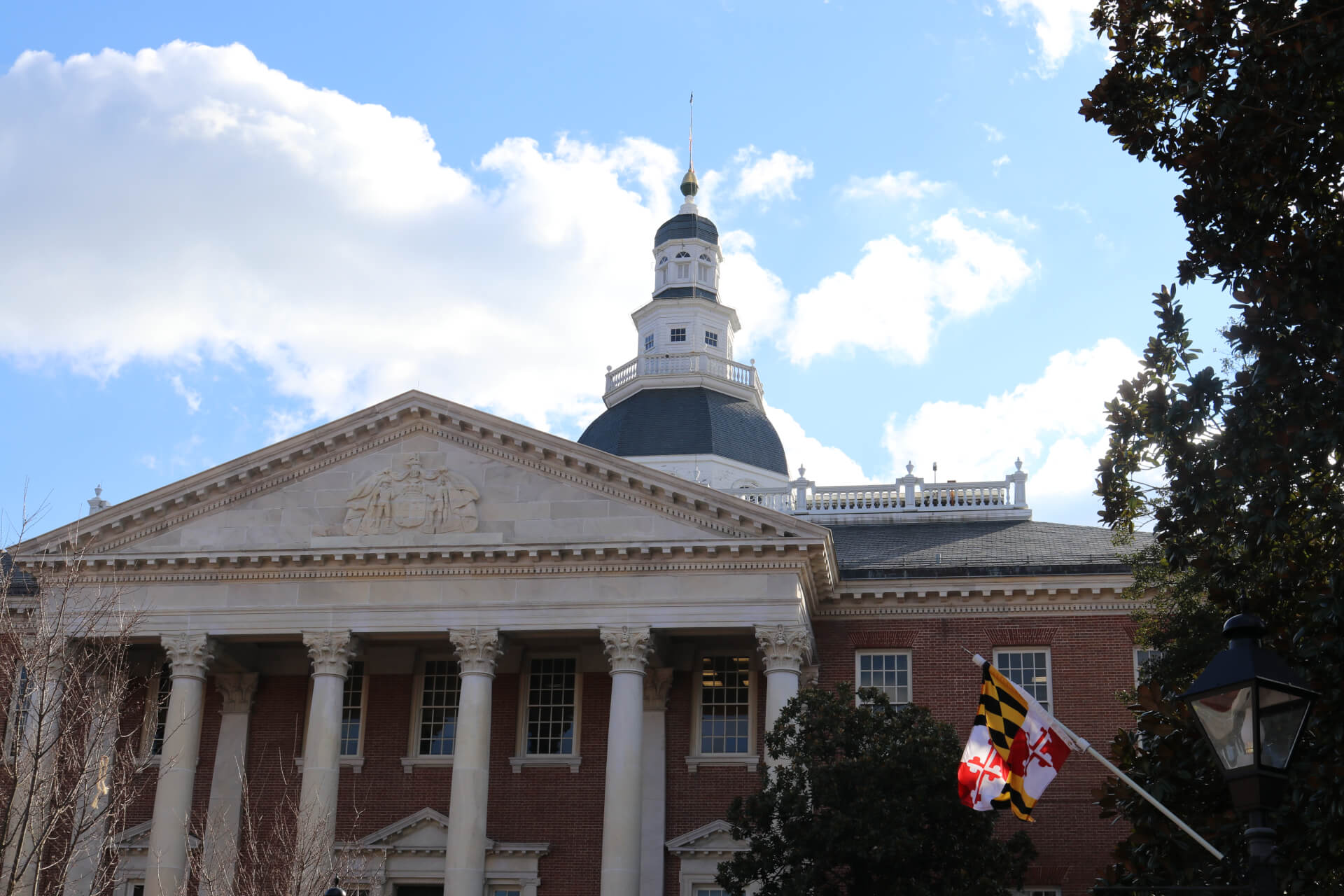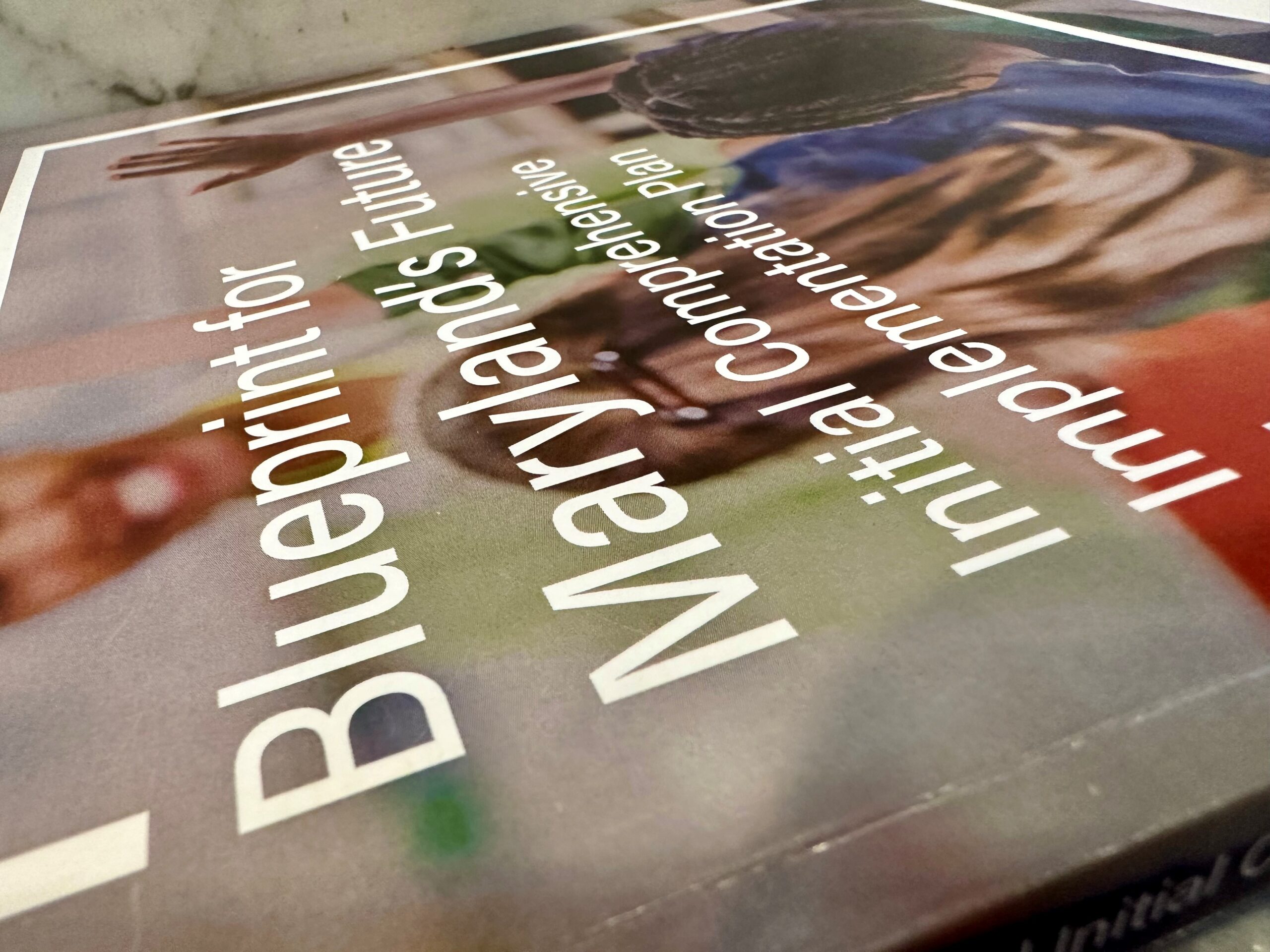With House Votes, Expanded Background Checks for Gun Sales Become Law, Digital Ad Tax Moves to Senate

Maryland law will now require private sellers to arrange background checks for sales of shotguns and rifles after the House of Delegates voted Thursday morning to override Gov. Lawrence J. Hogan Jr.’s veto of a bill that was passed last year.
The vote fell largely along party lines, 88-46, with Democrats in favor of overriding the veto.
The Maryland Senate voted in favor of the override earlier this week, 31-16.
The measure was one of 20 bills to become law Thursday after being overridden by both chambers of the General Assembly. Other bills that were enacted include the creation of a women’s pre-release center in the Department of Corrections, a bill to protect the confidentiality of juvenile defenders, a $5.5 million funding bill to support the Baltimore Symphony Orchestra, and a bill to establish funding for the Maryland Prescription Drug Affordability Board.
Hogan (R) vetoed dozens of pieces of legislation after the truncated 2020 legislative session, and lawmakers have an unusually long list of veto override votes planned for this session.
Senate Bill 208 and House Bill 4, the background check bill, was one of seven criminal justice bills Hogan vetoed last spring out of frustration that his own crime-reduction bills weren’t passed by lawmakers. The vetoes of all seven measures have now been overridden by one or both chambers of the legislature.
Senate Bill 208 closes what advocates call a “loophole” that allowed sales of rifles and shotguns by unlicensed sellers to go through without background checks. The bill will require people selling guns to conduct a background check through a licensed firearms dealer under most circumstances.
“Background checks are the most effective way to keep guns out of the hands of those who are legally prohibited – prohibited – from having them,” said Del. Vanessa Atterbeary (D-Howard), sponsor of the bill.
Requiring background checks on all gun sales would keep rifles and shotguns out of the hands of people who would fail a background check if they tried to purchase a gun from a licensed dealer, Atterbeary said.
Republicans opposed to the override decried the bill as an attack on law-abiding gun owners and the rural way of life.
“Time and time again, this body is hostile to rural residents. It’s the urban and suburban legislators who are systematically destroying our way of life,” said Del. Jefferson Ghrist (R-Upper Shore).
Atterbeary said she worked with those who oppose the bill over the course of two years on compromise language to avoid undue burdens on law-abiding gun owners. Some temporary gun transfers, such as those during group hunting excursions, and sales or transfers between family members are exempted from the law, she said.
The vote was celebrated by activists who have pushed for the legislation for several years.
“Because of the General Assembly’s action, Marylanders across the state, from our rural areas to our suburbs and cities, will be safer and we will reduce gun violence,” said Danielle Veith of Maryland Moms Demand Action. “…We’re proud to see Maryland join the growing list of states that require a background check on every gun sale, which we know Americans overwhelmingly support.”
Digital ad tax on way to law
In a second afternoon session, the House chamber voted to override a first-of-its-kind tax on digital advertising that would be levied on large tech companies, moving that measure closer to becoming law. The Senate chamber could override the measure on Friday.
The tax, which is between 2.5% and 10% depending on a company’s size, could generate up to $250 million in new tax revenue annually, according to a legislative analysis.
The bill also includes an increase of the state’s tobacco tax, as well as an expansion of the tax to electronic smoking devices. The tobacco tax increase could generate as much as $100 million in the first year of implementation, but would be expected to decrease in subsequent years, according to analysts.
Both sources of revenue are meant to fund education reform.
The digital advertising tax would target the largest tech companies ― those with more than $100 million in annual global revenues ― who store and manipulate users’ personal data. But opponents argue that the tech companies will pass their costs down to small business owners, many of whom have turned to digital advertising during the pandemic to drum up business.
House Majority Leader Eric G. Luedtke (D-Montgomery), who led the bill’s passage last session, disagreed. He said the large tech companies pay no tax in Maryland, while small businesses do.
“Unfortunately, these very powerful, very wealthy corporations have engaged in a campaign of fear-mongering in this state, telling our small business owners if your legislators apply a tax to us if they ask us to pay our fair share, we’re gonna have to increase your ad costs,” Luedtke said. “Well, I don’t want ad costs to go up for my small businesses, so I’ll tell you what: we’re calling their bluff.”
Luedtke and Senate President Bill Ferguson (D-Baltimore City) are sponsoring an emergency bill this session that’s meant to prohibit large companies from passing on the cost of the tax. The bill has a hearing in the Senate next week.
Republicans didn’t buy it.
Minority Leader Nicholaus R. Kipke (R-Anne Arundel) called the bill a “valiant attempt at going after some industries that really are taking advantage of the tax code and not paying their fair share and getting away with all kinds of horrible things.”
But he said the bill will likely face a legal challenge and may ultimately never become law, even if overridden.
“But if it is implemented, and Maryland does receive tax revenue, it will not be because Big Tech is paying for it,” Kipke said. “It will be paid for, one way or the other, without a doubt, by Maryland companies: small business, big businesses, all businesses that take out online advertisements.”
Luedtke said that he fully intends to pass the new emergency legislation out of the Revenue Subcommittee he chairs.
The House voted 88-48 to override the veto. Nine House Democrats voted to sustain the veto, according to an unofficial roll call: Harry Bhandari (D-Baltimore County), Ned Carey (D-Anne Arundel), Brian M. Crosby (D-St. Mary’s), Michele J. Guyton (D-Baltimore County), Carl Jackson (D-Baltimore County), Steve Johnson (D-Harford), Dana Jones (D-Anne Arundel), Mary Ann Lisanti (D-Harford) and Jay Walker (D-Prince George’s).
The House also voted Thursday to override Hogan’s vetoes of an additional half-dozen bills, which now move to the Senate for consideration.




 Creative Commons Attribution
Creative Commons Attribution